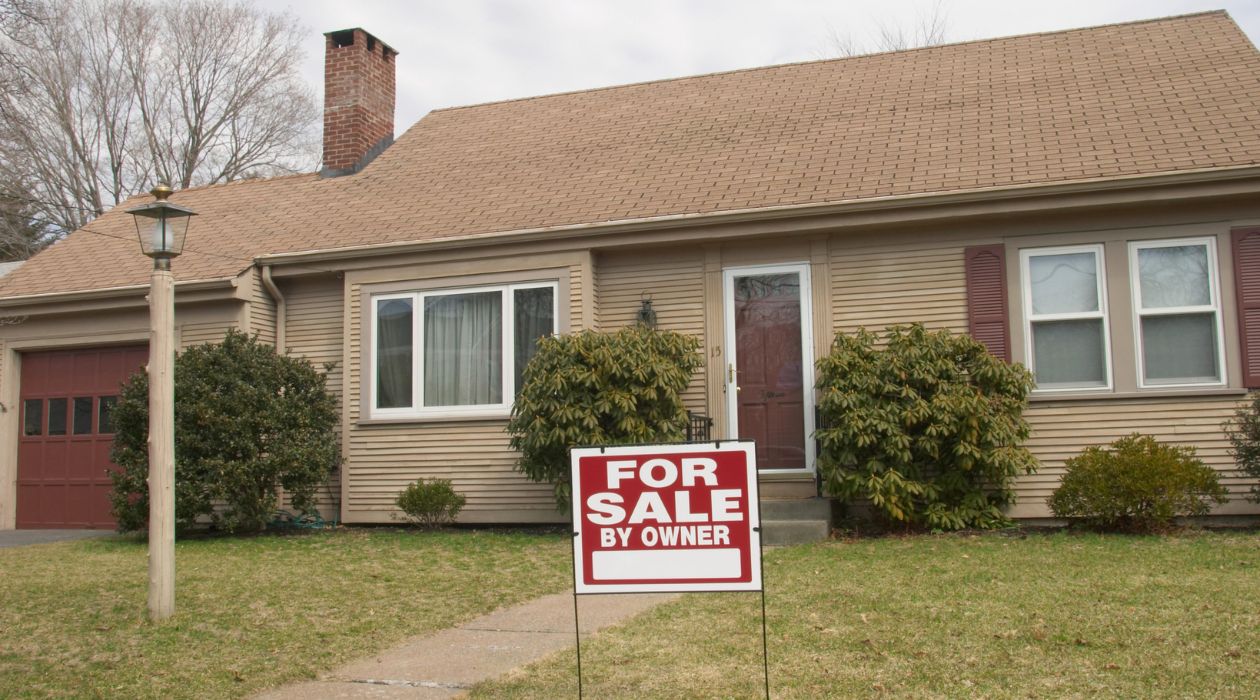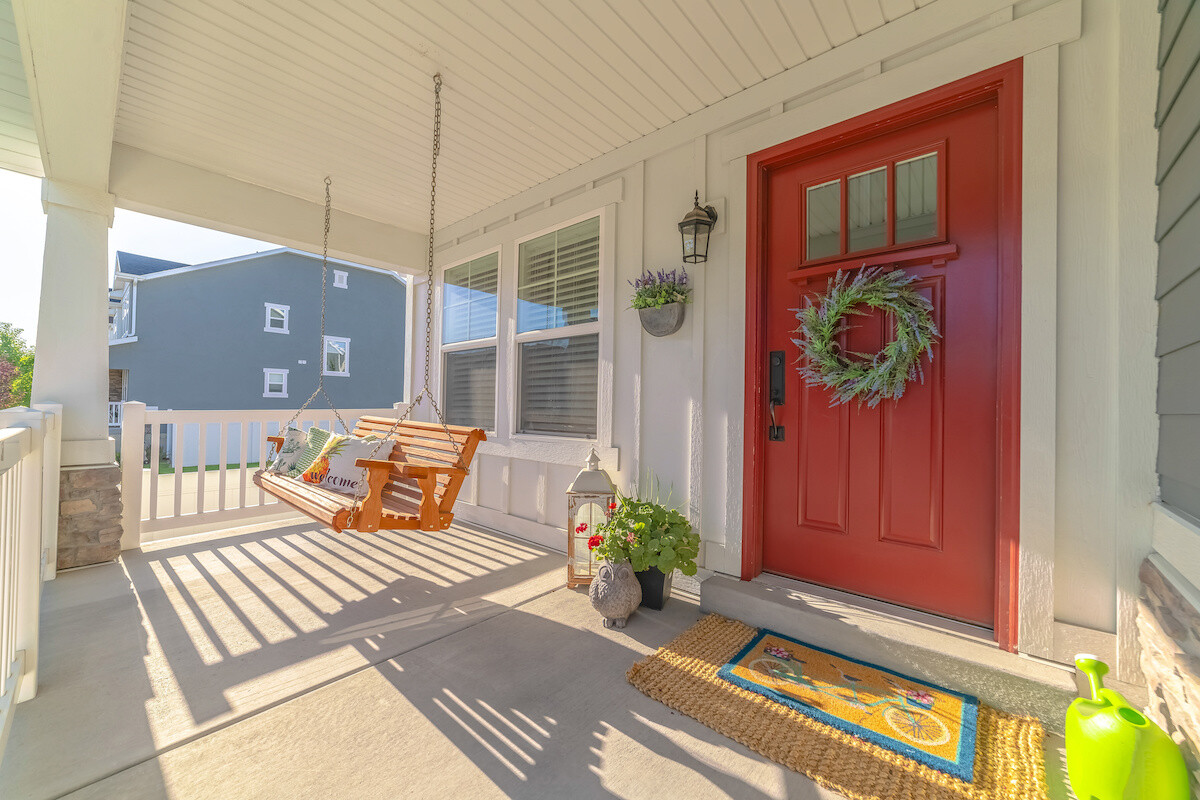Home>Articles>What Does It Mean To Buy Or Sell A House As-Is?


Articles
What Does It Mean To Buy Or Sell A House As-Is?
Modified: December 7, 2023
Discover the meaning of buying or selling a house "as-is" in this informative article. Learn about the benefits and considerations involved in as-is transactions.
(Many of the links in this article redirect to a specific reviewed product. Your purchase of these products through affiliate links helps to generate commission for Storables.com, at no extra cost. Learn more)
Introduction
Buying or selling a house is a significant decision that often involves intricate negotiations and meticulous planning. In some cases, homeowners may choose to sell their property “as-is,” while potential buyers may be enticed by the idea of purchasing a house in its current condition, with no further repairs or renovations required. But what exactly does it mean to buy or sell a house as-is?
When a house is sold as-is, it means that the property is being sold in its present state, without any guarantees or warranties from the seller regarding its condition. This can be an attractive option for sellers who may not have the resources or inclination to invest in repairs or upgrades before selling. On the other hand, buyers may see potential in a fixer-upper and take advantage of a lower selling price. However, this arrangement comes with its own set of advantages and potential pitfalls for both parties involved.
In this article, we will explore the concept of buying or selling a house as-is in more detail. We will discuss the implications for both buyers and sellers, as well as the legal considerations, financing options, and insurance considerations involved in such transactions. Whether you are considering selling your home as-is or contemplating purchasing a house in its current condition, this article will provide you with valuable insights and tips to navigate the process successfully.
Key Takeaways:
- Selling a house as-is offers convenience for sellers, attracting fixer-upper enthusiasts, but may lead to lower sale prices. Transparent disclosures and pre-inspections can help manage buyer expectations and maximize success.
- Buying a house as-is can provide affordable opportunities for customization, but buyers must carefully assess property conditions and be prepared for potential repairs. Thorough due diligence and working with professionals are essential for a successful purchase.
Read more: What Does “Glass House” Mean
Definition of “As-Is” – Understanding the concept of selling a house “as-is” – Implications for buyers and sellers
When a house is sold “as-is,” it means that the seller is offering the property in its current condition, without any guarantees or warranties regarding its state. The term “as-is” is commonly used in real estate transactions to inform potential buyers that the seller will not be responsible for making any repairs or improvements before the sale. This can include both visible and hidden defects, maintenance issues, or other problems that may be present in the property.
For sellers, the decision to sell a house as-is can provide various benefits. Firstly, it allows them to sell the property in its current condition without investing their time and resources into repairs or renovations. This is particularly advantageous if the property requires extensive work or if the seller is unable or unwilling to undertake the necessary improvements. Selling as-is can also attract investors or buyers who are specifically looking for fixer-upper properties and are willing to take on the task of renovations themselves.
However, selling a house as-is also comes with potential disadvantages and risks for sellers. The seller may need to adjust their asking price to account for the property’s condition, which could result in a lower sale price compared to selling a fully renovated home. Additionally, some buyers may be hesitant to purchase a house as-is due to concerns about hidden issues and potential future expenses.
On the buyer’s side, purchasing a house as-is can offer several benefits. Buyers who are willing to take on the responsibility of addressing any necessary repairs or upgrades may be able to negotiate a lower purchase price. This can provide an opportunity to secure a property in a desirable location at a more affordable price point. Additionally, buying a house as-is can give buyers the freedom to customize and renovate the property according to their own preferences.
However, there are implications for buyers when opting to purchase a house as-is. Since the seller is not responsible for any repairs, the buyer may have to bear the costs of addressing any structural or cosmetic issues that arise. It is essential for buyers to thoroughly evaluate the property’s condition and budget for potential expenses before committing to the purchase. Hiring a professional home inspector is crucial to identify any potential issues that may not be readily apparent.
When considering buying or selling a house as-is, it is crucial for both parties to carefully weigh the advantages and disadvantages. Sellers should assess their financial situation and the condition of the property before deciding to sell as-is, while buyers must thoroughly inspect the property and consider any potential repair costs. By understanding the concept of selling a house as-is and its implications for buyers and sellers, individuals can make informed decisions and navigate the process effectively.
Selling a House As-Is – Advantages of selling a house as-is – Potential disadvantages and risks – Tips for selling a house as-is
Deciding to sell a house as-is can have its advantages, especially for sellers who may not have the means or desire to invest in repairs or renovations. Understanding the benefits, potential drawbacks, and following some key tips can help sellers successfully navigate the process.
One of the primary advantages of selling a house as-is is the convenience it offers. By selling the property in its current condition, sellers can avoid the hassle of completing repairs, dealing with contractors, or managing renovations. This can be particularly beneficial for homeowners who may be in a time-sensitive situation, such as needing to relocate quickly or facing financial constraints.
Selling a house as-is can also attract a specific buyer pool, particularly those interested in fixer-upper properties. Investors or buyers seeking opportunities to add value through renovations may be more inclined to consider an as-is property. This increased interest can potentially lead to quicker offers and a smoother sales process.
However, there are potential disadvantages and risks associated with selling a house as-is. One significant drawback is that as-is properties typically sell for a lower price compared to fully renovated homes. Buyers usually expect to negotiate a lower purchase price to account for the potential repairs or updates they will need to make.
Additionally, selling an as-is house may deter some buyers who are not willing to take on the responsibilities and uncertainties associated with purchasing a property in its current condition. Some buyers may have concerns about hidden issues or hidden costs that could arise in the future. Therefore, it is essential for sellers to market and disclose the property’s condition transparently to manage buyer expectations effectively.
Here are some tips to help sellers navigate the process of selling a house as-is:
- Pre-inspection: Consider conducting a pre-inspection to identify any significant issues upfront. This will provide you with a clearer understanding of the property’s condition and allow you to make informed decisions when pricing the house and negotiating with potential buyers.
- Disclose property condition: When selling a house as-is, it is crucial to disclose all known defects, repairs needed, or issues with the property. Honesty and transparency will help manage buyer expectations and protect you from potential legal issues in the future.
- Showcase potential: Highlight the property’s potential by showcasing its best features and emphasizing opportunities for improvement. This can help attract buyers who are interested in taking on a renovation project.
- Consider minor repairs or updates: While major renovations may not be viable, addressing small repairs or cosmetic updates can make a significant difference in the property’s overall appeal. Simple fixes like fresh paint, new hardware, or landscaping improvements can go a long way in making the house more attractive to potential buyers.
- Work with a real estate agent: Enlist the help of a qualified real estate agent experienced in selling as-is properties. They can provide valuable guidance, market the property effectively, and negotiate on your behalf to ensure a successful transaction.
By considering these advantages, potential drawbacks, and implementing these tips, sellers can navigate the process of selling a house as-is more effectively and increase the likelihood of a successful sale.
Buying a House As-Is – Benefits of buying a house as-is – Factors to consider before buying – Tips for purchasing a house as-is
Buying a house as-is can offer several benefits for prospective buyers who are willing to take on the responsibility of addressing repairs and renovations. However, it is essential to carefully consider certain factors before committing to purchasing an as-is property. By understanding the advantages, evaluating key factors, and following helpful tips, buyers can make informed decisions and navigate the process successfully.
One of the significant benefits of buying a house as-is is the potential to secure a property at a more affordable price. Since as-is properties often require repairs or updates, the selling price is typically lower compared to fully renovated homes. This can offer buyers an opportunity to purchase a house in a desirable location or neighborhood that may have otherwise been out of their budget.
Another benefit of buying a house as-is is the ability to customize and renovate the property according to personal preferences. By taking on the repairs and improvements themselves, buyers have the freedom to create a home that reflects their style and vision.
However, before purchasing a house as-is, there are a few factors to consider:
- Financial readiness: Assess your financial situation and budget carefully. While the purchase price may be lower, it is crucial to consider the potential repair costs and renovations that the property may require. Factor in these additional expenses when determining if buying an as-is property is financially viable for you.
- Thorough inspection: Hiring a professional home inspector is essential when buying a house as-is. They will thoroughly evaluate the property’s condition, identify any issues, and provide insight into the necessary repairs or upgrades. This information will help you make an informed decision and negotiate with the seller.
- Risks and uncertainties: Buying a house as-is comes with inherent risks since the seller is not responsible for addressing any repairs or problems. Be prepared for potential unexpected issues that may arise after the purchase and be financially and emotionally prepared to handle them.
- Market research: Conduct thorough market research to ensure you are paying a fair price for the as-is property. Look at comparable sales in the area, consider market conditions, and seek guidance from a qualified real estate agent to determine if the asking price aligns with the property’s condition.
Here are some tips for purchasing a house as-is:
- Do your due diligence: Research the neighborhood, talk to the neighbors, and investigate any potential zoning or code issues that may affect the property. The more information you gather, the better equipped you will be to make an informed decision.
- Negotiate the purchase price: Use the information gathered from the home inspection to negotiate the purchase price with the seller. Identify the necessary repairs and estimated costs and factor them into your offer.
- Work with professionals: Engage the services of experienced professionals, such as a real estate agent and home inspector, who have expertise in dealing with as-is properties. They can provide invaluable guidance and help ensure a smooth transaction.
- Consider financing options: Discuss financing options with lenders who are experienced in as-is property purchases. They can provide insights into loan programs that may be suitable for financing the purchase and any necessary repairs or renovations.
By evaluating these benefits, considering key factors, and following these tips, buyers can navigate the process of purchasing a house as-is successfully. The key is to perform thorough due diligence, be financially prepared, and work with professionals who can guide you through the complexities of an as-is transaction.
When buying or selling a house as-is, it’s important to thoroughly inspect the property and understand the potential risks involved. Consider hiring a professional inspector to uncover any hidden issues before making a decision.
Legal Considerations – Disclosure requirements – Inspection rights and limitations – Negotiating repairs and alterations
When buying or selling a house as-is, there are important legal considerations that both buyers and sellers need to be aware of. These considerations revolve around disclosure requirements, inspection rights and limitations, as well as negotiating repairs and alterations. Understanding and adhering to these legal aspects can help ensure a fair and transparent transaction for all parties involved.
Disclosure requirements: Sellers have a legal obligation to disclose any known material defects or issues with the property, regardless of whether it is being sold as-is. Carefully review the applicable disclosure forms provided by your state or local jurisdiction and provide accurate and complete information about the property’s condition. Failing to disclose material defects can lead to legal consequences and potential liability in the future.
Inspection rights and limitations: Buyers have the right to conduct a thorough inspection of the property, even when purchasing it as-is. It is crucial to include an inspection contingency in the purchase agreement, allowing the buyer to hire a professional home inspector to assess the property’s condition. However, it’s important to note that in an as-is sale, the seller is not typically obligated to make any repairs based on the inspection results. Buyers should be prepared to assume responsibility for necessary repairs or negotiate with the seller based on the findings.
Negotiating repairs and alterations: In an as-is sale, negotiating repairs and alterations can be more challenging. Buyers should be prepared to take on the responsibility for any repairs or improvements themselves. However, it is still possible to negotiate with the seller, especially if significant issues are discovered during the inspection. Buyers can request for a reduction in the purchase price or ask the seller to make specific repairs before the closing. Sellers, on the other hand, have the option to accept or decline these requests based on their own considerations.
It is crucial for both buyers and sellers to consult with a qualified real estate attorney or professional to understand the specific legal requirements and ramifications of buying or selling a house as-is. These professionals can ensure all necessary disclosures are made, inspection contingencies are included in the purchase agreement, and any negotiations are handled appropriately.
Additionally, buyers should be proactive in conducting their due diligence and thoroughly assessing the property’s condition. It is essential to hire a professional home inspector who specializes in as-is properties and can provide a comprehensive report of any identified issues. This information can be used as a basis for negotiation and in making informed decisions.
Sellers, on the other hand, should provide full and accurate disclosure of the property’s condition and make sure all required disclosure forms are completed. This transparency will help manage buyer expectations and reduce the risk of legal disputes in the future.
In summary, legal considerations play a crucial role when buying or selling a house as-is. Both buyers and sellers should be aware of their obligations regarding disclosure, understand inspection rights and limitations, and be prepared to negotiate repairs and alterations. Consulting with professionals and adhering to legal requirements will help ensure a smooth and fair transaction.
Read more: What Does “Brick House” Mean
Financing and Insurance – Loan options for as-is purchases – Insurance considerations for as-is properties
When buying or selling a house as-is, it is essential to consider the financing and insurance options available. Both buyers and sellers need to be aware of the specific considerations associated with as-is properties to ensure a successful transaction.
Loan options for as-is purchases: Buyers interested in purchasing a house as-is may encounter some challenges when it comes to financing. Traditional lenders typically prefer properties that are in good condition and may be hesitant to provide a loan for an as-is property. However, there are several financing options to explore:
- Conventional loans: Some lenders may offer conventional loans for as-is purchases, but the buyer may need to meet stricter requirements and provide a larger down payment.
- FHA 203(k) loans: These loans are specifically designed for properties that require significant repairs or renovations. They provide funds not only for the purchase but also for the necessary improvements.
- Renovation loans: Buyers can explore renovation loans that allow them to finance both the purchase price and renovation costs, such as the FHA 203(k) loan or Fannie Mae’s HomeStyle loan.
- Cash purchases: Cash buyers have the advantage of being able to purchase an as-is property without the constraints of traditional financing. If possible, buyers can consider using cash to secure the purchase.
Insurance considerations for as-is properties: Insuring an as-is property can be more challenging compared to insuring a fully renovated home. Insurance companies may be more cautious when providing coverage due to the potential risks associated with properties that may have existing issues or require repairs. Here are some insurance considerations for as-is properties:
- Property condition: Insurance companies may conduct their own assessment of the property’s condition before providing coverage. If there are known hazards or issues, the insurance company may either exclude coverage for those specific risks or require repairs to be completed before providing coverage.
- Specialty insurance: In some cases, buyers or sellers of as-is properties may need to seek out specialty insurance companies that offer coverage tailored for properties in need of repair or renovation. These companies may be more willing to provide coverage but may have higher premiums.
- Liability coverage: Liability coverage is crucial for both buyers and sellers of as-is properties. It protects against potential injuries or accidents that may occur on the property during the transaction process. Consult with an insurance professional to ensure you have the appropriate liability coverage.
- Policy exclusions: Review the insurance policy carefully to understand any exclusions or limitations related to the property’s condition. This will help you determine if additional insurance coverage or modifications to the policy are necessary.
It is essential for both buyers and sellers to communicate with their insurance providers and explain the specific circumstances of the as-is transaction. This will ensure that they have appropriate coverage and understand any policy limitations or requirements.
In summary, financing and insurance considerations play a vital role when buying or selling a house as-is. Buyers should explore loan options suitable for as-is properties, such as FHA 203(k) loans or renovation loans. Sellers should be aware of the potential challenges with financing and be prepared to provide information to potential buyers about loan options. Additionally, both buyers and sellers need to understand the insurance considerations associated with as-is properties, including property condition assessments, specialty insurance options, and liability coverage.
Conclusion
The concept of buying or selling a house as-is can offer unique opportunities and challenges for both buyers and sellers. Understanding the implications, benefits, and legal considerations associated with as-is transactions is crucial for a successful real estate transaction.
For sellers, selling a house as-is can provide convenience, allowing them to sell the property in its current condition without investing in repairs or renovations. However, it is essential to be aware of potential disadvantages, such as a potentially lower sale price and limited buyer interest. Following tips for selling as-is, such as conducting a pre-inspection and providing transparent disclosures, can help manage buyer expectations and maximize the chances of a successful sale.
Buyers who are open to purchasing a house as-is can benefit from lower purchase prices and the potential to customize and renovate the property according to their preferences. However, buyers must carefully evaluate the property’s condition, conduct thorough inspections, and be prepared to assume responsibility for repairs and renovations. Following tips for purchasing as-is properties, such as conducting due diligence and working with professionals, will help buyers navigate the process more effectively.
Legal considerations, such as disclosure requirements and inspection rights, play a vital role in as-is transactions. Sellers must disclose any known material defects, while buyers have the right to conduct inspections to assess the property’s condition. It is essential for both parties to consult with professionals and adhere to legal requirements to ensure a fair and transparent transaction.
Financing and insurance are also important factors to consider when buying or selling a house as-is. Buyers may encounter challenges in securing financing for as-is properties, but options such as FHA 203(k) loans or renovation loans may be available. Insurance considerations for as-is properties require special attention, with additional assessments and potential endorsements and exclusions to the policy. Consulting with insurance providers and understanding policy limitations is essential.
In conclusion, buying or selling a house as-is can be a viable option for both buyers and sellers, providing potential benefits and challenges. By understanding the concept, considering the implications, and following best practices, individuals can navigate the process successfully and achieve their real estate goals while managing risks and ensuring a fair and transparent transaction.
Frequently Asked Questions about What Does It Mean To Buy Or Sell A House As-Is?
Was this page helpful?
At Storables.com, we guarantee accurate and reliable information. Our content, validated by Expert Board Contributors, is crafted following stringent Editorial Policies. We're committed to providing you with well-researched, expert-backed insights for all your informational needs.















0 thoughts on “What Does It Mean To Buy Or Sell A House As-Is?”